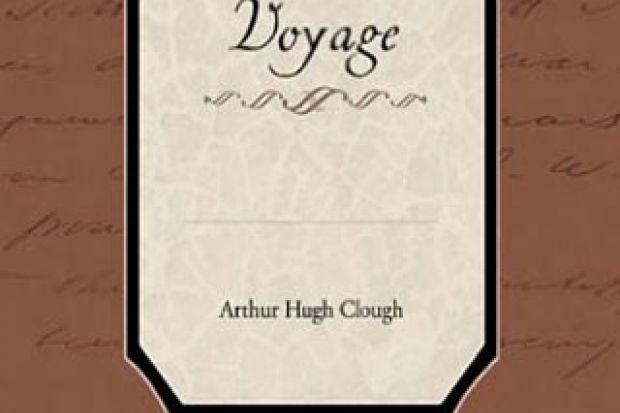David Eastwood, vice-chancellor, University of Birmingham, is reading Arthur Hugh Clough’s Amours de Voyage (Macmillan, 1903, facsimile from Lightning Source UK) and wondering why it’s taken him so long to do so. “Remarkable in form – a long epistolary poem – this work ranges from a meditation on faith and doubt, through reflections on Roman decline, to listless love against the background of the Revolutions of 1848-49. It ultimately finds solace not in action but in understanding: ‘Ere our death-day, Faith, I think, does pass, and Love; but Knowledge abideth.’ ”

Graham Farmelo, by-fellow at Churchill College, Cambridge, is reading Jeroen van Dongen’s Einstein’s Unification (Cambridge University Press, 2010). “Einstein’s project to find a unified theory of gravity and electromagnetism is often described as quixotic, a somewhat embarrassing conclusion to his glorious career. Yet serious assessments of this work are few and far between. Van Dongen puts that right in this handsome, well-researched and thought-provoking volume.”

Matthew Feldman, reader in contemporary history, Teesside University, is reading Jesse Walker’s The United States of Paranoia: A Conspiracy Theory (HarperCollins, 2013). “Building on Richard Hofstadter’s work, Walker extends the ‘paranoid style’ in American politics to various types of mythic enemies (above, below, within and without, and even the ‘benevolent conspiracy’). While it overstates reactions to the far Right, the further back into history this breezily written academic study goes, the more revealing, especially regarding the republic’s adolescence.”

Helen Taylor, College of Humanities fellow (Arts and Culture) and professor of English, University of Exeter, is reading Rebecca Solnit and Rebecca Snedeker’s Unfathomable City: A New Orleans Atlas (University of California Press, 2013). “Reinventing the atlas (as in Solnit’s earlier study of San Francisco), this is a historical geography by map-makers, writers and artists describing post-industrial, post-catastrophe New Orleans in terms of its spaces of music, spirit, language, food and drink. The maps playfully couple prostitution and seafood sellers, civil rights and lemon ice. A fitting scholarly gumbo for a city of the senses.”

Sharon Wheeler, senior lecturer in journalism, University of Portsmouth, is reading Graeme Simsion’s The Rosie Project (Penguin, 2013). “Don Tillman looks like a young Gregory Peck. Sadly, he’s lacking social skills and empathy. So he reckons the only way he’ll get a wife is for candidates to fill in questionnaires. And then Rosie appears in his office one day. This is a quirky comedy of (bad) manners, set in Australian academia, where you’ll soon be rooting for the unconventional hero and his sparky female lead.”
Register to continue
Why register?
- Registration is free and only takes a moment
- Once registered, you can read 3 articles a month
- Sign up for our newsletter
Subscribe
Or subscribe for unlimited access to:
- Unlimited access to news, views, insights & reviews
- Digital editions
- Digital access to THE’s university and college rankings analysis
Already registered or a current subscriber? Login

